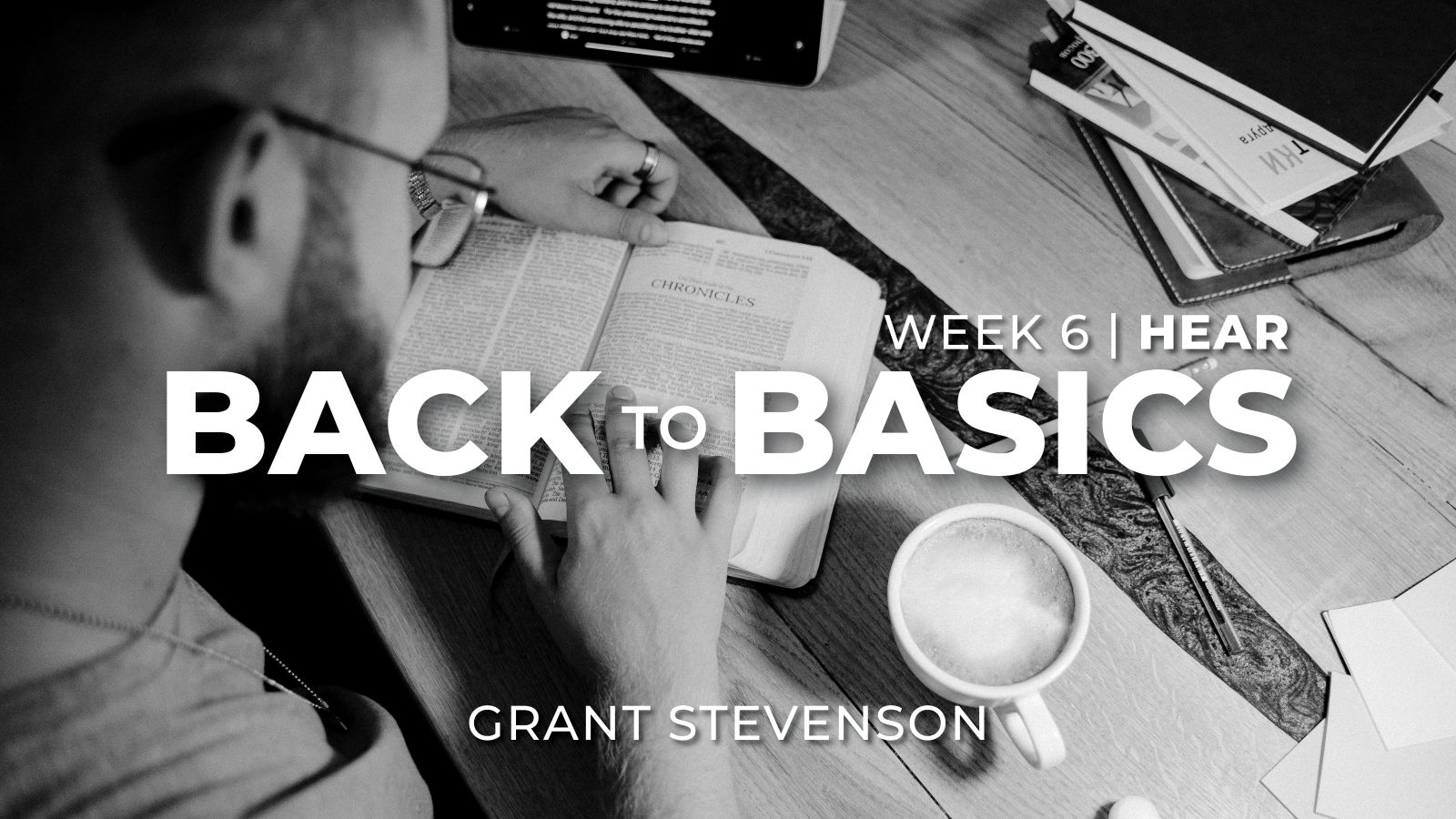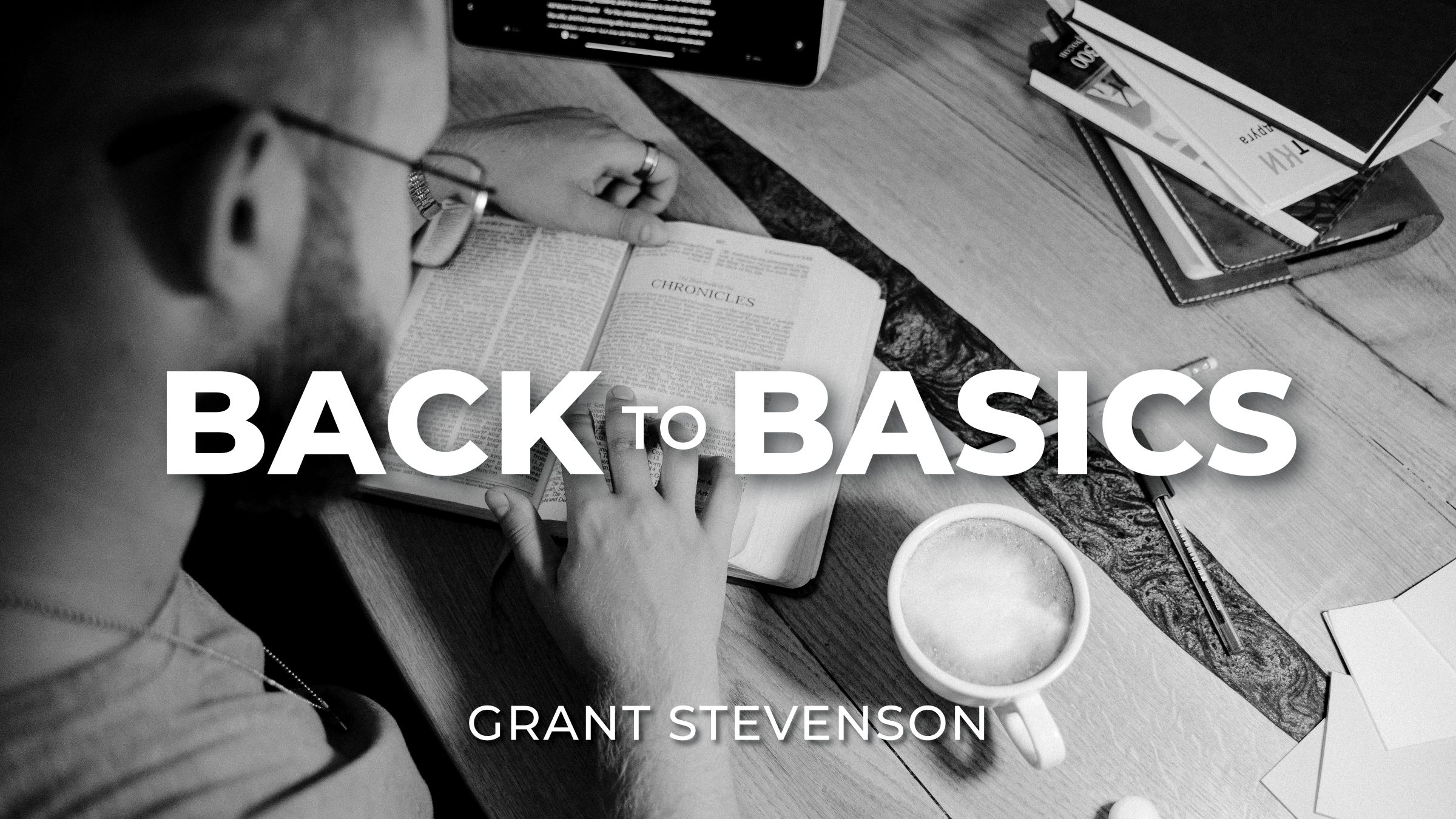when you look at your life right now, what are you hearing? Is it God’s clear, loving voice, or has it been shaped by the enemy’s discouraging suggestions?
Life is a journey, and along the path, it’s easy to get sidetracked. Distractions, challenges, and even seemingly innocent suggestions can cause us to drift away from the core truths that sustain our spiritual health. Today we look at the discipline of listening to God speak to us personally.
The Power of Suggestion
Remember those silly primary school jokes, like “elephant shoe”? It highlights a psychological phenomenon called the McGurk Effect. When what we hear conflicts with what we see, our brain can create a completely different perception of what’s being said. This illustrates the power of suggestion: we often hear what we are led to see, even if it’s not the actual message. In our spiritual lives, this phenomenon has a profound parallel. The enemy, the devil, is a master of suggestion, subtly working to distort God’s truth into a “silly joke” in our minds.
The serpent didn’t directly contradict God when he confronted Eve in Genesis 3, instead, he used a suggestion: “Did God really say, ‘You must not eat from any tree in the garden?’” This subtle insinuation was enough to plant doubt and twist what Eve had heard directly from God. Similarly, in Matthew 4, the devil tempted Jesus in the desert with suggestions, even quoting Scripture out of context: “If you are the Son of God, tell these stones to become bread…” and “Throw yourself down, for it is written…”
Jesus’ Example: Placing Truth Before Suggestion
The crucial difference between Eve and Jesus lies in their response to these suggestions. Eve was misled, more like many of us in our humanity. As Paul warns in 2 Corinthians 11:3, “But I am afraid that just as Eve was deceived by the serpent’s cunning, your minds may somehow be led astray from your sincere and pure devotion to Christ.”
Jesus, however, countered the enemy’s suggestions by correctly placing God’s spoken truth before Himself. His responses communicated a profound truth: what the enemy suggests cannot change what He hears God saying. This is a vital lesson for us. The enemy strategically forms suggestions, like a potter shaping clay, against us in our situations. His goal is for us to become discouraged and doubtful, to miss what God is truly speaking to us.
So, when you look at your life right now, what are you hearing? Is it God’s clear, loving voice, or has it been shaped by the enemy’s discouraging suggestions? Proverbs 18:21 reminds us that “death and life are in the power of the tongue.” This principle applies not only to what we speak but also to what we allow ourselves to hear. If we let the enemy’s destructive suggestions override God’s life-giving truth, we risk diminishing the abundant life God intends for us.
Hearing God in Every Circumstance
The thief comes to “steal and kill and destroy,” but Jesus came “that they may have life, and have it to the full” (John 10:10). The difference between abundant life and destruction often hinges on the words we allow ourselves to hear and hold onto, especially when faced with challenging situations. When suffering comes, what do you hear internally? “Where’s God gone?” “What did I do wrong?” “Am I a fool for having faith?” These are the enemy’s suggestions, designed to create doubt and despair.
Think of Mary and Martha in John 11, grieving their brother Lazarus. Their suggestion to Jesus was, “Lord, if you had been here, my brother would not have died.” They felt let down. Yet, Jesus raised Lazarus from the dead, completely changing the story. The disciples, disillusioned after Jesus’ crucifixion, also spoke from supposition: “We had hoped that he was the one who was going to redeem Israel” (Luke 24). But Jesus defeated death, and their hope was restored. Even Joseph, chosen for greatness, endured years of pain and possible questioning, only to later declare to his brothers, “You intended to harm me, but God intended it for good” (Genesis 50:20).
We can hear a good God speaking to us, even in situations that hurt, as long as we are not listening through the lens of the enemy’s suggestions.
The Inner Voice: A Starting Point
A crucial starting point for hearing God’s truth is examining your inner voice. Dallas Willard noted that “God’s primary means of communicating with us is through the inner voice, the inner thoughts and impressions that are characteristic of our own minds when they are under the influence of the Spirit of God.” So, if you don’t speak kindly to yourself, who are you truly hearing? God is love, and His voice aligns with the characteristics of love described in 1 Corinthians 13:4-7: patient, kind, not easily angered, not keeping records of wrongs, always protecting.
While God’s truth can sometimes be challenging to accept, it will always be spoken in love, kindness, and patience, without anger or shame, and always for your protection. One of the simplest ways to begin hearing God’s truth beyond the enemy’s suggestions is to start speaking kindly to yourself. How can you truly hear God’s “I love you” if your internal dialogue is harsh and critical? We are called to be like Jesus not only to others but also to ourselves. How would Jesus speak to you if He were here?
Reflect:
- What specific situations in your life right now do you feel are being influenced by discouraging or doubtful suggestions, similar to Mary and Martha’s frustration with Jesus?
- What have those suggestions been saying about God’s character or His care for you?
- How does your inner voice speak to you in these challenging situations? Is it kind and encouraging, or critical and shaming?
- Considering God’s love as described in 1 Corinthians 13, what specific changes do you need to make in how you speak to yourself?
- What truth from God’s Word can you intentionally place before yourself in your current circumstances to counter the enemy’s suggestions, remembering that God can bring life out of what seems dead, and good out of what was intended for harm?
Closing Prayer
Heavenly Father, we thank You for Your unfailing love and the truth of Your Word. Forgive us for the times we have allowed the enemy’s subtle suggestions to cloud our perception and cause us to drift from Your truth. Help us to pay closer attention to what we have heard from You.
Strengthen our inner ears, Lord, so that we may discern Your voice amidst the noise of the world and the lies of the enemy. Teach us to speak kindly to ourselves, aligning our inner dialogue with Your loving heart.
May we, like Jesus, place Your truth before every suggestion and circumstance, knowing that You are a God who raises the dead and turns all things for our good. Amen.
Watch the sermon on YouTube



